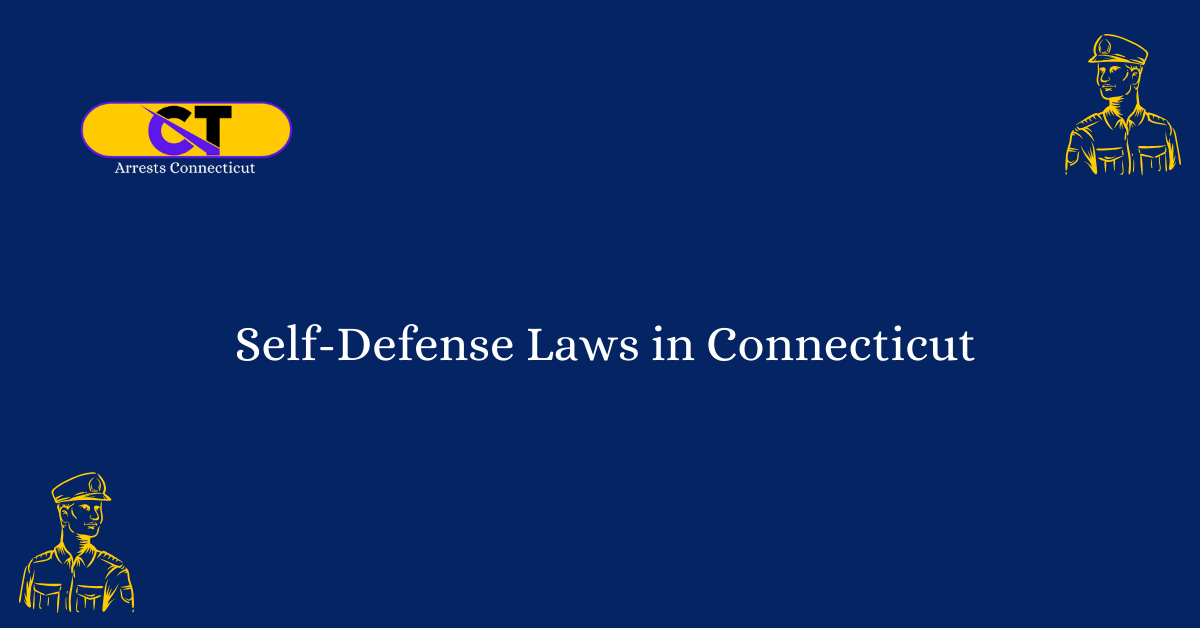Self-Defense Laws in Connecticut
Self-defense laws play a crucial role in defining the legal boundaries of an individual’s right to protect themselves and others from harm. Connecticut, like many other states in the United States, has specific statutes and legal principles that govern the use of force in self-defense situations. This article aims to provide a comprehensive guide to self-defense laws in Connecticut, outlining key concepts, legal principles, and scenarios where individuals may invoke self-defense.
The Castle Doctrine
Connecticut adheres to the Castle Doctrine, which grants individuals the right to use force, including deadly force, to defend their home, property, or any other place where they have a legal right to be. This doctrine eliminates the duty to retreat before using force and is based on the belief that individuals have a right to feel safe and secure within their own premises.
Use of Force in Public Spaces
While Connecticut recognizes the right to use force in self-defense, the extent to which force can be employed may vary depending on the circumstances. The use of deadly force is generally justifiable when an individual reasonably believes it is necessary to prevent imminent death or great bodily harm to themselves or others.
Reasonable Belief Standard
Connecticut applies a “reasonable belief” standard when evaluating self-defense claims. This means that the individual must have a genuine and reasonable belief that the use of force is necessary to protect themselves or others from harm. This subjective standard takes into account the individual’s perception of the threat at the time the force was used.
Stand Your Ground Law
Connecticut does not have a specific “Stand Your Ground” law, which means there is no obligation for an individual to retreat before using force in self-defense, even if they could do so safely. However, the absence of a duty to retreat does not grant individuals unrestricted rights to use force. The use of force must still be reasonable and justifiable based on the circumstances.
Retreat and Avoidance
While there is no duty to retreat under Connecticut law, a person claiming self-defense may be scrutinized on whether they could have safely avoided the confrontation. If an individual can safely retreat and chooses not to do so, it may impact the reasonableness of their use of force.
Defense of Others
Connecticut allows individuals to use force, including deadly force, to defend others if they reasonably believe that such force is necessary to protect the third party from imminent danger of death or great bodily harm. The same reasonable belief standard applies in cases of defending others.
Initial Aggressor and Provocation
Self-defense claims may be compromised if the individual claiming self-defense was the initial aggressor or engaged in provocative behavior leading to the confrontation. In such cases, the right to use force in self-defense may be limited or even eliminated.
FAQs
What is self-defense?
Self-defense is the legal right and act of protecting oneself, others, or property from imminent harm. It involves the use of reasonable force to counter an immediate threat, with the intention of preventing injury or danger. The justification for self-defense often hinges on the individual’s genuine belief in the necessity of the action based on the circumstances at hand.
Why is it important to understand Connecticut self-defense laws?
Understanding Connecticut’s self-defense laws is essential for anyone residing or visiting the Constitution State as these laws play a crucial role in ensuring the safety and well-being of its residents.
What do Connecticut self-defense laws allow?
Connecticut self-defense laws allow individuals to use force, including deadly force, to defend themselves, their homes, and others from imminent threats of death or serious bodily harm. The state follows the Castle Doctrine, permitting the use of force without a duty to retreat within one’s home or any place where they have a legal right to be. The reasonableness of the belief in the necessity of force and the absence of provocative behavior are crucial factors in determining the justifiability of self-defense actions.
Under what circumstances is the use of force considered justifiable?
The use of force is considered justifiable when an individual reasonably believes it is necessary to defend themselves or others from imminent harm. The circumstances must warrant a genuine fear of death or serious bodily harm, and the response should be proportionate to the perceived threat. Additionally, the individual must not be the initial aggressor or engage in provocative behavior leading to the confrontation for the use of force to be deemed justifiable.
What is the level of force that can be used in different situations?
The level of force is permissible in self-defense situations varies based on the perceived threat. In general, individuals are allowed to use force proportionate to the threat they face, escalating to deadly force only when there is an imminent risk of death or serious bodily harm. The concept of reasonable belief guides the assessment of whether the force used aligns with the perceived danger in a given situation







